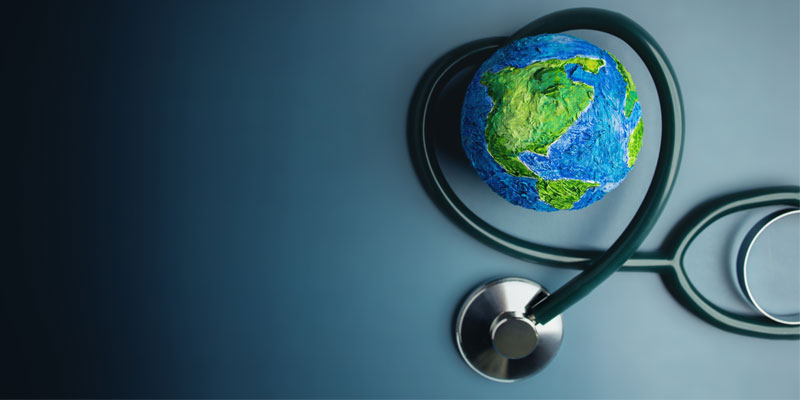How can economics help address global health challenges?
-
Case study
- Health and Wellbeing
Posted on 18 April 2023
The resources available to spend on healthcare are limited. Economics provides the tools to help ensure the delivery of ‘more health for the money’. York research has guided health spending in many parts of the world, including in Africa.

The issue
Ministries of health and their international partners in sub-Saharan Africa face significant challenges in allocating often very constrained healthcare budgets to meet the health needs of their populations. The way in which resources are allocated affects population health. Economic research can guide decision-making to achieve better and fairer health outcomes.
The research
York economists have undertaken research and worked alongside decision-makers to find ways of measuring the health consequences of alternative options for spending healthcare funds. Spending on treatments and interventions in one disease area means less is available to spend on other diseases and treatments. Weighing up the impact on health of these choices - known as the “health opportunity cost” - is complex in many global health settings.
Researchers provided an economics framework and tools for analysing the impact of spending and estimating the health opportunity costs of different options in a systematic way. They use this to produce calculations across a wide range of diseases.
They also applied these tools to investigate how best to use resources when considering the treatment options for HIV and how to arrange the monitoring of those with HIV in order to produce the most improvement in health outcomes. A similar approach was taken to look at the benefits of investing in new products, such as new HIV diagnostic tests.
The outcome
The research was used in Malawi and other east and southern African countries to design the package of health benefits that is funded from public budgets for local populations. This ensures that the funds are spent on the things that will produce most health gains for those in need. International organisations, including the World Health Organisation (WHO), as well as the UK Government, also used the research results to make recommendations for healthcare policy and new investments in many countries, maximising the value for money achieved.
Guidelines on HIV produced by WHO were based on research that showed that people who are successful on treatment need to visit clinics less frequently, whilst still getting good health outcomes. This approach is available now in Africa and for the majority of the 17 million people receiving HIV treatment worldwide. The WHO guidance on the choice of treatments for people with advanced HIV was also informed by York research.
Recommendations to invest in the development of HIV self-testing technologies, as another alternative to people having to visit clinics, were based upon a novel approach to guiding new developments put forward by the York research. HIV self-testing is now widely available.
Featured researchers
• Professor Paul Revill
• Sakshi Mohan
• Wiktoria Tafesse
